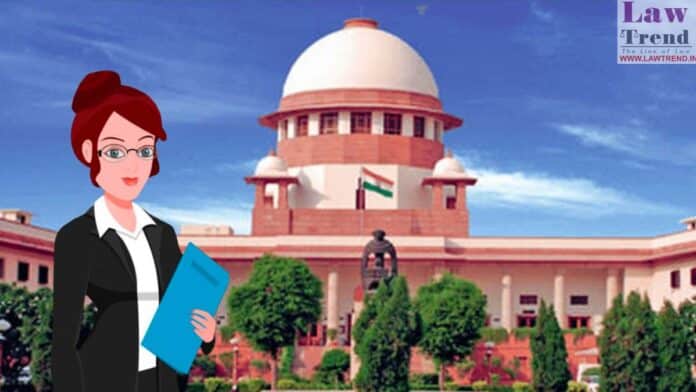The Supreme Court expressed its disappointment today when a female advocate seeking 33% reservation for women in Gujarat bar associations engaged a male advocate to argue her case. A bench comprising Justices Surya Kant and Ujjal Bhuyan questioned the petitioner’s decision, noting the inconsistency between her plea and her actions.
The court was hearing a petition filed by the lady advocate practicing in Gujarat, advocating for gender-based reservation in bar bodies. Represented by a male counsel, the petitioner’s case took an unexpected turn when Justice Kant raised two critical objections at the outset.
“Why Not Argue the Case Yourself?”
Justice Kant first questioned why the petitioner had approached the Supreme Court directly instead of the Gujarat High Court. More pointedly, the bench queried why the petitioner had not argued the matter herself, given her advocacy for female representation.
“When the lady advocate is asking for 33% reservation, why can’t she argue the case? We would like to know whether she deserves that reservation or not. She should be ready to argue the case. Why should she ride on the shoulders of a male advocate?” remarked Justice Kant, underscoring the symbolic importance of self-representation in the context of the petition.
Petitioner’s Counsel Responds
In response to the first objection, the male counsel representing the petitioner clarified that the plea was filed before the Supreme Court due to its involvement in a similar case concerning Delhi bar associations. However, on the second objection, he acknowledged the court’s concerns and assured the bench that the petitioner would appear in person to argue her case at the next hearing.
Justice Kant, however, remained unconvinced about the rationale for bypassing the Gujarat High Court. He emphasized that while the Delhi High Court’s judgment in the related matter may have persuasive value, it would not prejudice the Gujarat High Court from making an independent decision.
The court ultimately scheduled the matter for further hearing on December 19, coinciding with the date of the Delhi Bar matter, to allow the petitioner to present her case personally and assist the court in addressing broader issues.




